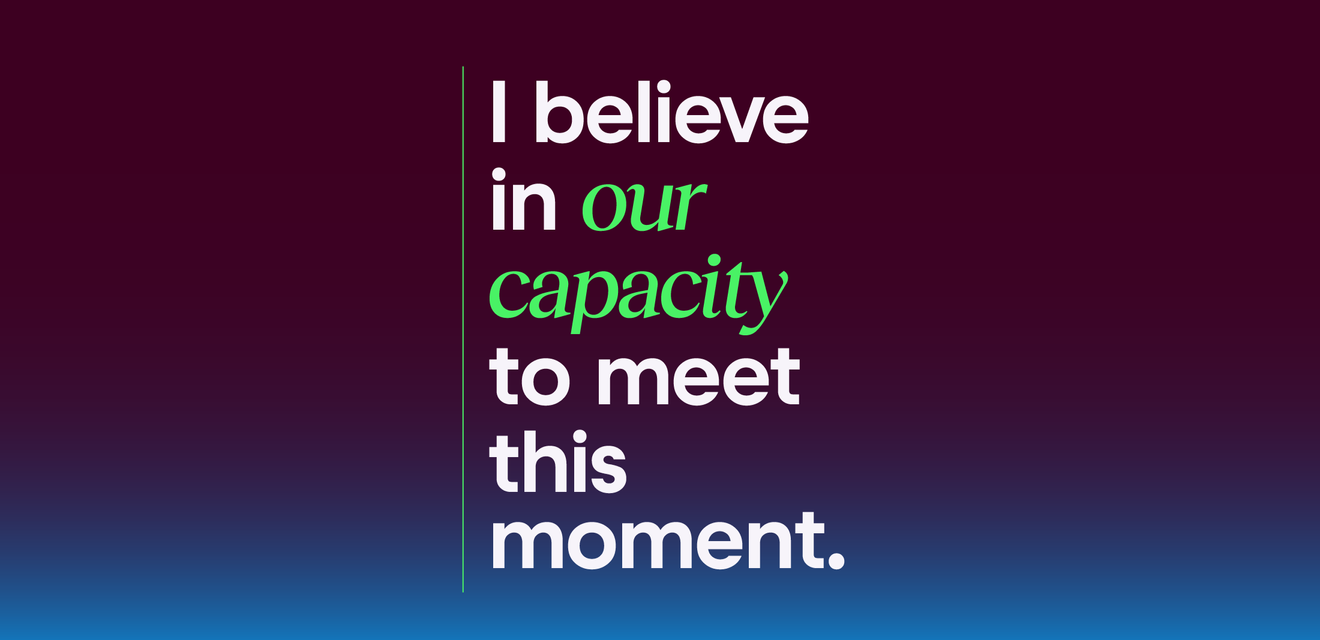100 Days In - A follow-up Q&A with ACT's Managing Director of Financial Solutions, Robbert Sijbrandij

1: Now that you have settled into Financial Solutions and ACT, what are some of your short- and long-term goals? How have these changed much from what you thought they would be when you started here?
We want to grow the business. Short term, this means getting ourselves staffed right so that long term, our operations are such that we can be closer to our clients and counterparties, that we can consult on complex matters, that we have the most diverse skill set in-house. Of particular interest long term are the structural changes going on within Europe’s shipping industry, specifically with carbon credits, bio certificates, and biofuels.
2: Thought pieces about success in the corporate world tend to focus on balancing hard and soft skills. Which are the most important for you in your day-to-day work?
Our day-to-day work in Financial Solutions is tied to performance, things that can be quantified. This is all straightforward, and the hard skills needed to excel are easily defined. As for the soft skills, they are all the qualities and traits that you would need to coach and to be coached, to build team cohesion and peer-to-peer trust. I am a big believer in training outside your department, getting to understand how all of ACT’s components work together. And I cannot say enough about the value of motivation. You have got to think, if a person’s job is to make sales calls and that person shows up to work motivated, that person is likely to make more calls and, indeed, more successful calls.
3: The economist Kenneth Boulding said, “anyone who believes exponential growth can go on forever in a finite world is either a madman or an economist." What are your insights into the current market downturn?
Yes, and the global economy certainly found the point at which the finite nature of things became clear. We can say that there may not be enough to go around, however, this is really a result of our interconnectedness. One breakdown in a long chain of events can be catastrophic. In a larger sense, the economy became overloaded with free cash. Over the past 15 years, making money had never been easier. Those left behind were, and remain, at a massive disadvantage. The challenge, then, is twofold: addressing income inequality and addressing environmental degradation. We are at the max of what our world can bear. While voters in larger industrialized countries seem unable to agree on paths forward, I am convinced there is enough cleverness and inventiveness to save us.
4: Since you are not likely to be discussing the causes of market trends with counterparties – presumably, they already know – what are your discussions with them like right now?
A lot of our counterparties have installations that burn energy. For them, this is more of a side product, as with EUAs. They just need to buy them. Europe has started burning coal again, which is an unfortunate though necessary response to supply gaps caused by international sanctions against Russian energy. However, with energy prices being so high, the prices of staples, such as fruits and vegetables, and carbon offsets have also risen. Margins are shrinking and growers and producers are getting squeezed, often leading to closures. In the past, businesses would have bought allowances in one go, now we are seeing them spread risk incrementally.
5: During market downturns, uncommon economic theories tend to enjoy surges in popularity. Which, do you think, are due for revivals?
Our change in thinking about coal has been interesting. I mean, this is something that we were firmly against – we paid coal companies to close, now we are paying them to reopen – but now we see coal as a temporary necessity, a stopgap measure on our way to a future powered by wind and solar. We know this energy transition will be accompanied by higher corporate taxes. So then, we have found a way to combine hard-nosed realpolitik with Keynesian taxation theory.
6: Looking ahead, then, so many of the social and environmental causes and initiatives seem to be at risk due to cutbacks and restrictions that tend to accompany market volatility. What do you think?
These initiatives are among the most challenging ones the world has seen to date. We should all stay the course and not get thrown off the right track by headwinds that are out of our control. I think the green deal that Europe supports is very powerful, sometimes controversial, and definitely very expensive. It will take great leadership to see this through the difficult geopolitical and economic times that we are facing. Again though, I believe in our capacity to meet this moment.